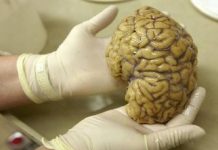After a spine chilling winter new season has set in with bounteous beauty all around and our school garden has blossomed to the fullest. But alas children are not free and relaxed to observe and enjoy these lovely scenes and melodies of spring as it is school examination time and pressure is visibly mounting as the exam schedule is nearing.
Exams! OMG! The very first word in this sentence even in its abbreviated form may send anyone quaking in his boots and sets one’s alarm bells ringing. In fact, everyone who is likely to appear in an examination gets scared even if he/she is a person of steel nerves. Despite a lot of exam preparations at school or home, our youngsters come under the grip of exam stress and fall into severe physical, mental and psychosis disorders that unfortunately sometimes lead them to take even an extreme step of ending life.
Exam Blues Causes:
Apart from many others things, a close fact finding analysis on exam stress may bring to the suface many reasons but the most prominent among these are educational and occupational consequences of exams, peer pressure on the basis of grades or percentage of marks, judgment of performance by friends, parents relatives and neighbours, disappointing expectations of rank-obsessed schools and teachers.
Academic Reasons:
Stress during exam times has roots in the poor academic progression of students resulting from lack of routine in their studies, absent mindedness of the learners during teaching-learning sessions, lack of planned practice and revisions, prolonged illness, parental laxity, absenteeism, unplanned school system, lack of efficient and diligent faculty at schools, etc.
Common Misconceptions about Examinations: Examinations as an event are not as stressful as the reaction to their outcome. l Exams are Memory Tests: (False) – Exams are not memory tests. Rather they are designed to test one’s ability and skill to apply information gained or learnt. In the exams a child is expected to respond through ideas and facts to a situation given in a question.
- Children Fail Exams: (False) – Exam are a normal assessment procedure to judge a child’s learning outcome not to identify his disabilities and failures. They help judge learners’ learning potential, knowledge and skill levels. They are designed to find out what the learners know rather what they don’t.
- Exams are a Burden: (False) – In fact, exams are an opportunity to get onto the track of success and achievement. They help us reach our desired goal.
- Exams need plenty of Written Work: (False) – Examination is not wholly a test of speed, handwriting and voluminous written work. It is rather a time bound, short well planned and diligently prepared workout. In exams, writing beyond expected limit is neither necessary nor it brings good grades.
- Exams are solely for marks and grades: (False) – This is a common assumption among children that exams are conducted for grades or marks. On the contrary, these are for evaluation and analysis of a child’s academic progress as well as individual academic growth and prospective development.
Exam Preparation Strategies:
As the examination schemes and schedules are already out and our learners are on their feet to excel in the exams, here are some workable strategies for the school administrators, teachers and parents to share with the learners.
Regular Attendance in the Classroom:
Classroom knowledge is interactive, as well as important. The knowledge that one grasps in a classroom is extremely valuable. Make it a point to attend your classes regularly, so that you don’t miss out on the important points and topics discussed in the classroom. Often, teachers mention important topics and concepts that might come in handy during the class tests and exams. Attending classes will help you to understand and remember each and every concept clearly and get rid of any doubts that you have regarding the subject. No amount of reading or self-study can match up to the level of interactive study that is the distinct feature of classroom sessions
Set Your Timing Right:
Every individual learner has a distinct study and learning style. Choose morning, afternoon or evening, when you work best. Don’t sit with your books the whole day but adhere to timing when you are more focused, alert and productive. Avoid going on unhealthy and woozy study drives. Prefer quality timing to quantity sit outs.
Prepare, Practice and Prove your Learning :
‘The best preparation for good work tomorrow is to do good work today’, wrote Elbert Hubbard an American writer, publisher, artist and philosopher. Most of the students under exam stress have a history of not preparing well in advance. However, the best preparation is the early start up along with practice with verifying the learning. After each preparatory session one must jot down the points learnt and verify ‘What have I just learnt?’ ‘How can I use it to answer an exam question?’
Test Your Revision Work:
The last few months before the examination must be spent in revision focusing on every subject. Frame personal timetable as per your own requirement. While taking tests, teachers at school, a friend or a peer learner may help your testing. At home parents can be engaged in the tests. Besides, self-testing again and again in the written form, can pace up one’s learning stability. Testing at increasing intervals enhances and boosts up confidence and lowers stress and anxiety levels. For example, test yourself 15 minutes after revising a topic; test again the next day before taking up the next topic; then three days later and one week later.
Mind Your Mnemonics:
One very common drawback among children that enhances exam stress is mugging up without understanding the concept or idea. Of course, facts and formulae, lengthy information and details and dates need more memory use and rote learning. For example in Social Sciences it may be somewhat difficult to remember names of planets in the order of their position in the universe. But mnemonic acronym My Very Educated Mom Just Served Us Nuts (Mercury, Venus, Earth, Mars, Jupiter, Saturn, Uranus, Neptune) makes it easy to remember. In Mathematics steps of long division can be learnt easily remembering Dad, Mom, Sister, Brother, Rover (Divide, Multiply, Subtract, Bring Down, and Remainder). Remember mnemonics are personally invented cues that each child can develop to boost memory.
Accept What You Expect:
This is a well studied fact that a certain amount of stress plays functional role in our routine as it keeps us alert, focused, and beware and that it helps to produce optimal effects and strength to perform a task at hand. Students undergoing examination must be taught to assert balance between their limitations and expectations. Parents and school teachers too must assess how much the children can do. It is no use flogging a dead horse to run a race.
Teacher is the Best Counselor:
During exam times a good teacher can be a bridge over troubled waters. Last week in my classroom I had an interactive guidance session with students who are about to take the board examination. To my pleasant surprise, I found all the students listening to me with rapt attention and had their queries redressed. So every subject teacher must organize at least two or three exam counseling sessions and this will obviously help to get rid of exam stress.
While counseling the students it is important to talk about how to plan exam preparation and revision. Besides issues like healthy living, personal health and hygiene, meditation, morning walk need to be discussed. While returning from a revision class I put up these lines of a poem on our school bulletin board for my students –
When things go wrong,
as they sometimes will,
When the road you’re trudging seems all uphill,
When the funds are low
and the debts are high,
And you want to smile,
but you have to sigh,
When care is pressing you down a bit-
Rest if you must, but don’t you quit.
REFERENCE:















